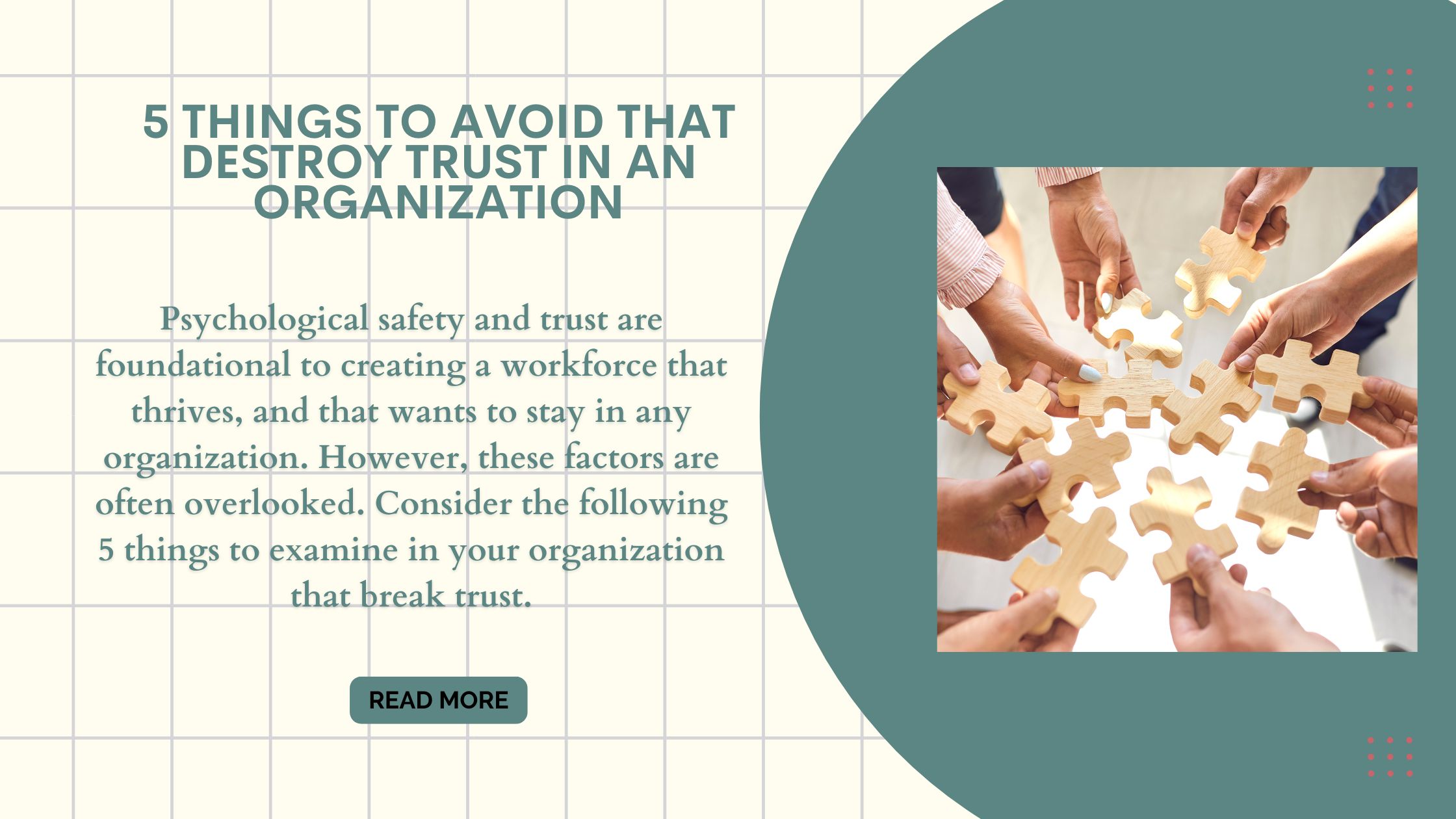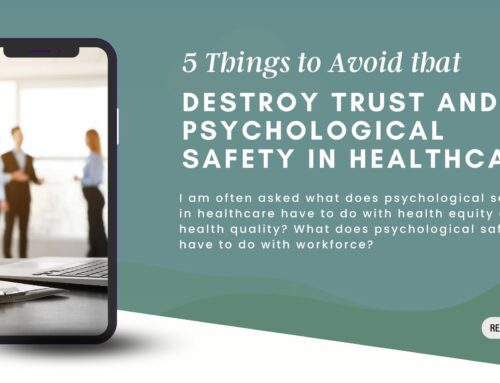
“Saying ‘we care about you’ then gaslighting us when we tell you our concerns completely destroys our trust and faith in you as an organization.” — Anonymous Doctor
Why Psychological Safety in Healthcare Matters
Psychological safety in healthcare plays a vital role in fostering trust, reducing burnout, and improving patient care. Despite its importance, many healthcare organizations overlook it.
In the Surgeon General’s 2022 Report on Creating a Thriving and Well Workforce, psychological safety and trust were identified as essential factors in preventing burnout and moral injury among physicians and healthcare providers. A JAMA study revealed that one in five physicians plan to leave their jobs within the next three years. Additionally, a Mayo Clinic study warned that if physicians and nurses follow through on their plans to leave, there won’t be enough providers to meet patient needs.
This issue goes beyond workforce retention. When healthcare professionals lack psychological safety, patient care suffers. A strong, trusting work environment encourages employees to stay, perform better, and provide higher-quality care.
What Is Psychological Safety?
Psychological safety allows individuals to speak up, share concerns, and contribute ideas without fear of negative consequences. It fosters a workplace where healthcare providers feel heard, valued, and supported.
Timothy Clark’s book, The 4 Stages of Psychological Safety, outlines four key elements that organizations should develop:
- Safety to Be Included: Feeling accepted as part of the team
- Safety to Learn (and Make Mistakes): Being able to ask questions and learn from errors
- Safety to Contribute: Having a voice in discussions and decisions
- Safety to Challenge (or Report Issues): Feeling safe to question practices or report concerns
When these elements are missing, trust breaks down. As a result, healthcare professionals may hesitate to raise concerns or suggest improvements, ultimately affecting both workplace morale and patient outcomes. Below are five common behaviors that damage psychological safety in healthcare settings.
5 Things That Destroy Psychological Safety in Healthcare
1. Gossip, Backbiting, and Duplicity
Gossip and secretive conversations weaken trust and create an environment of exclusion. While casual workplace discussions may seem harmless, they often result in fractured relationships and decreased collaboration. When employees fear being the subject of negative talk, they may hesitate to express their opinions or report issues.
To foster a healthier work culture, organizations should promote team-building activities and encourage open dialogue. Creating spaces where employees can connect in a positive way helps reduce division and strengthen trust.
2. Lack of Clear Communication
Unclear messaging leads to confusion, misunderstandings, and frustration. When staff members receive conflicting instructions or vague expectations, they may feel uncertain about their roles and responsibilities. Over time, this uncertainty can create a stressful work environment.
Leaders can prevent miscommunication by establishing clear, transparent, and consistent messaging. Regular updates, open forums, and structured feedback channels help ensure that everyone remains informed and aligned with organizational goals.
3. Misalignment of Actions and Words
Employees lose confidence in leadership when words and actions do not align. Promising transparency but withholding critical information, or advocating for teamwork while rewarding individual competition, sends mixed signals. This inconsistency damages credibility and makes it difficult for staff to trust leadership decisions.
To rebuild trust, organizations must ensure that values, policies, and daily actions reflect their stated commitments. Holding leaders accountable and fostering a culture of integrity helps establish psychological safety in the workplace.
4. Lack of Accountability for All
Favoritism and inconsistent enforcement of rules create resentment and division. When some employees receive preferential treatment while others face stricter consequences, workplace morale suffers. In extreme cases, this imbalance can lead to bullying, where certain staff members become targets of criticism or exclusion.
Fair and transparent accountability policies help prevent these issues. Applying the same standards to all employees, from entry-level staff to executives, ensures a sense of fairness. Moreover, a well-defined process for addressing concerns allows employees to feel supported and protected.
5. Disrespecting Boundaries
Ignoring personal and professional boundaries undermines psychological safety. Micromanaging employees, assigning excessive workloads, or dismissing requests for work-life balance creates an unhealthy environment. Furthermore, consistent boundary violations can make individuals feel undervalued and disrespected.
Organizations can address this issue by educating leaders and staff about healthy boundary-setting. Training in consent culture, clear communication, and mutual respect equips employees with the skills to navigate workplace interactions more effectively. Encouraging regular discussions about workload expectations also helps create a more supportive work culture.
Creating a Culture of Psychological Safety in Healthcare
Psychological safety in healthcare is not just an ideal—it is a necessity for improving workplace culture, retaining skilled professionals, and ensuring high-quality patient care. Addressing behaviors that break trust allows organizations to create an environment where employees feel respected, empowered, and motivated to perform at their best.
By recognizing these challenges and implementing meaningful changes, healthcare leaders can foster a workplace culture that prioritizes trust, accountability, and collaboration. When employees feel safe, they are more likely to engage, innovate, and provide exceptional care to the patients who rely on them.
Create Psychological Safety in your organization. When you leave your employees feeling seen, heard, understood, valued, appreciated, and respected they will stay and make your organization their career home. Want to know more? Contact Dr. Clairborne to discuss her offerings and how she can help our leaders increase trust, safety and belonging in your organization. Learn more: https://www.mindremappingacademy.com/corporate-programs
Need a speaker? Learn more about Dr. Maiysha’s speaking and trainings. Bring the tools of trauma responsive communication to your leaders, and create a culture of psychological safety in your organization. Increase employee engagement, fulfillment, well-being, and retention. Contact us today and schedule a call with Dr. Maiysha to learn how we can improve your workplace culture.










